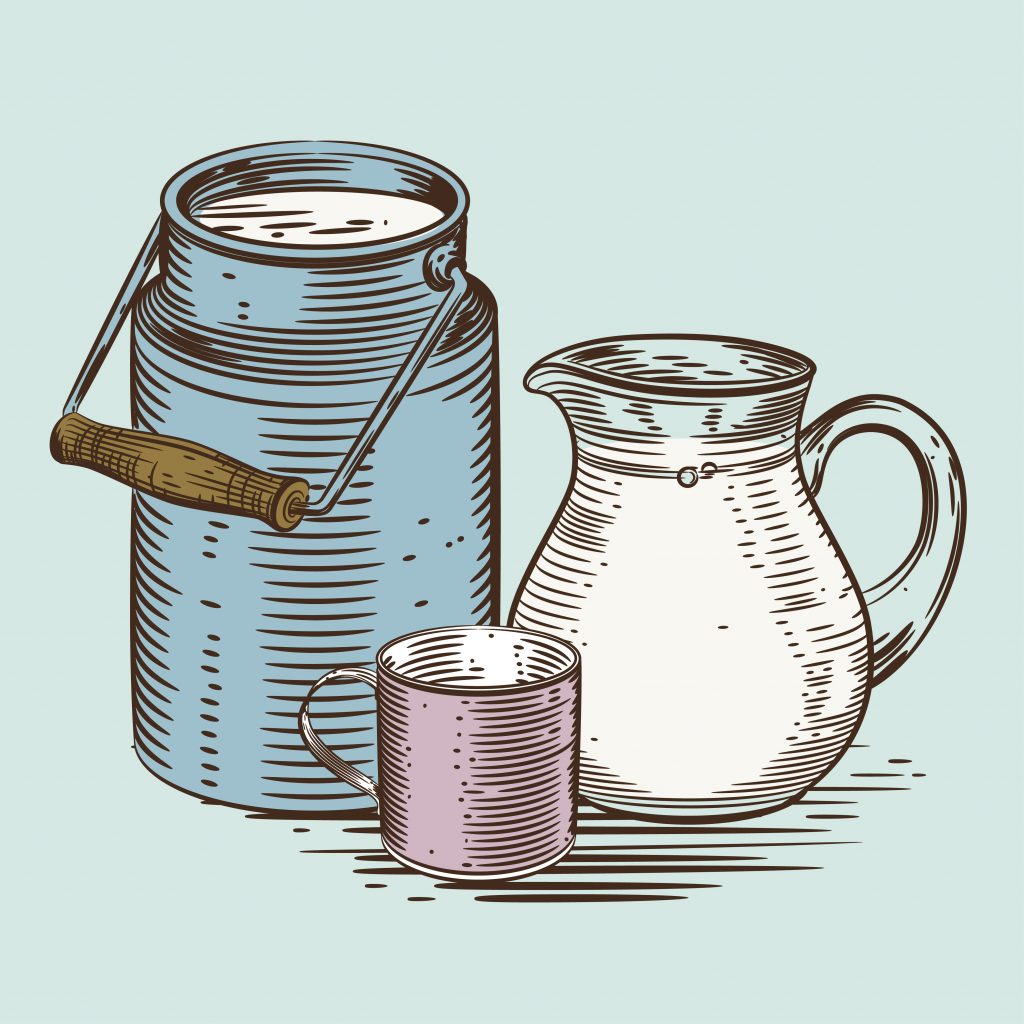Milk for Pesach
Kosher for Passover food is now so abundant, thanks largely to OU Kosher, that we take it for granted. Of course, it wasn’t always so.
In England, where I grew up, the years of the Second World War (1939-1945) were a time of hardship and deprivation. Food, clothing and many other items were often in short supply and were rationed due to the war effort. Orthodox Jewish housewives would trade the bacon, ham and other treif foodstuff coupons in their ration books with their non-Jewish neighbors for coupons for butter, eggs and other items they could use.
In 1940 most young children were evacuated out of the larger cities when the German Blitz began. They were billeted with families in the safety of the countryside while bombs fell night after night on London and elsewhere, injuring and killing tens of thousands and destroying large swaths of homes and businesses. Many Jewish children, often to their dismay, found themselves placed in non-Jewish homes. The foster parents, however well-meaning, had probably never met a Jew before, but at the very least usually realized that serving the children bacon for breakfast would not make them feel at home.
To its credit, the organized Jewish community realized that it was faced with an unprecedented, multi-faceted problem and struggled to meet the challenge, although understandably not always with great success. Besides trying to make kosher food supplies available wherever Jews were then to be found, great efforts were made to continue the children’s Jewish education, which was obviously vital given the circumstances in which many of them now lived.
Since they had three small sons aged eight, four and one (I was born later, toward the end of the war), my parents were evacuated with their family and were able to find a tiny house in Bovingdon, a small Hertfordshire village about thirty miles outside London. They were probably the first—and last—Jews ever to live there. During the week, my father worked in London in a factory making parachutes for the Royal Air Force, often also serving as a nighttime fire warden, directing the fire brigade to where fires had broken out due to the bombings. He would come to Bovingdon for Shabbat, bringing whatever kosher food he could obtain.
Two frum teenage German refugee sisters were also living with my parents. They had come to England in the Kindertransport program and were placed in a Jewish group home. Since the home had no facilities for Pesach, the girls were sent to stay with a Jewish family for the week. But on arrival at their hosts, they very quickly realized that the home was not really kasher l’Pesach, and they telephoned the director of the group home asking to be placed elsewhere. His initial reaction was that it would be impossible to find another host family so close to yom tov, whereupon the girls told him that he had better send two hearses right after Pesach as they would perish from starvation by that time. Somehow, my parents were contacted, and the girls ended up living with them for over two years.
My father was able to get matzot and some Pesachdik ingredients for my mother to cook with, but was faced with the challenge of how to obtain fresh milk. So he took a very tall glass vase and kashered it for Pesach. (This is not done much these days, but in Europe it was common for glassware to be kashered by soaking it in cold water for three days, changing the water every twenty-four hours.) He put the vase into my brother’s baby carriage and wheeled it off to a local farm.
So that he could be certain the milk would be kasher l’Pesach, he asked the farmer to milk directly from one of his cows into the vase. Whatever he might have thought of this request, the farmer was quite willing, but he had a problem. How would he know how much milk my father was taking and therefore how much to charge him? He proposed using his one-pint milk dipper to fill the vase with water, counting the number of pints it contained. For my father, this raised a red flag. Even though he was quite aware that there was only a remote possibility that this procedure would make the vase—and the milk—chametzdik, he was taking no chances and had to come up with another plan. He suggested to the farmer that they first fill the vase with water, and then pour it from the vase into the dipper as many times as it would take. The problem was solved, and the milking commenced. When the vase was full my father paid the farmer and trundled it back home with its precious cargo, and the family had milk for yom tov.
But when Chol Hamo’ed came they needed more milk. Off went my father to the same farmer with the big vase in the carriage. Once again, he asked him to follow exactly the same procedure and to milk straight from the cow into the vase.
“Righto,” said the farmer in his agreeable manner, “but does it have to be the same cow?”
David Olivestone, a member of Jewish Action’s Editorial Committee and a frequent contributor to the magazine, lives in Jerusalem with his wife Ceil.

